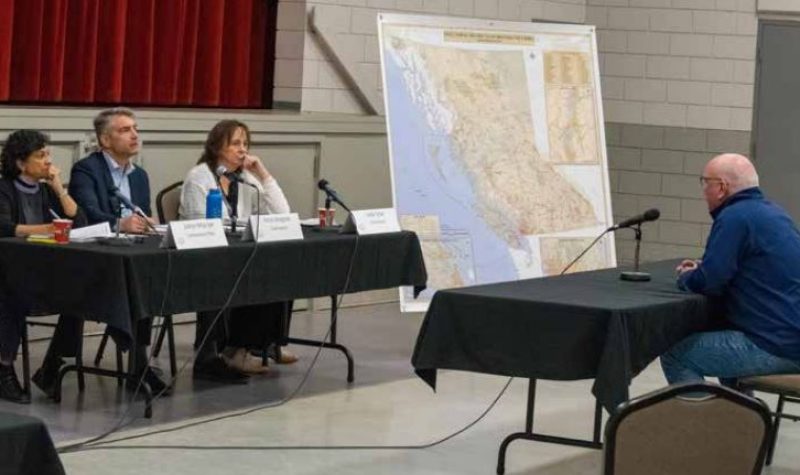The British Columbia Electoral Boundaries Commission is proposing to add the outskirts of Cranbrook to the Columba River-Revelstoke riding, as a way to bulk up the population of the riding. The core of Cranbrook would remain in the Kootenay East riding.
That's according to the commission's preliminary report, which was tabled in the B.C. legislature on Oct. 3.
After every second election, or usually every eight years, by law the B.C. government has to appoint a commission to look at provincial riding boundaries. That's why the riding Revelstoke is in has been adjusted over the years.
The commission is made up of three people. They started working together last fall, and held public meetings in the spring—the meetings were in Revelstoke on April 7.
The commission tries to make populations of ridings roughly the same, to ensure that each person's vote carries the same weight. This is virtually impossible in B.C., where the concentration of people live in the lower mainland and on Vancouver Island.
This means that people who live in less populated ridings, currently have four times more weight in their vote than those who live in densely populated areas. The commission is proposing changes to shift that to three times the weight.
It also strives to achieve effective governance by making sure that residents have equivalent access to their member of legislative assembly, no matter where they live.
This takes into account factors beyond population like geography, communications and remoteness.
Columbia River-Revelstoke
Columbia River-Revelstoke includes Revelstoke, Mica Creek, Field, Golden, Kimberley, and Radium Hotsprings.
The population is 40,703. The commission calculates what the average of each riding should be by dividing the population of B.C. by the number of ridings. This is 53,773.
It then strives to ensure each riding falls no more than 25 per cent above or below the average.
Columbia River-Revelstoke is one of 11 ridings that are 25 per cent lower than average. Six are over 25 per cent higher.
The commission initially was thinking to move Golden and Revelstoke to the Salmon Arm-Shuswap riding. However, Highway One is the only transportation corridor connecting the cities to that riding, and weather often shuts the road down. This would run counter to effective governance, according to the commission's report.
Six new ridings
The commission is proposing six new ridings in B.C. One in Surrey, where the commission's report say the populations of ridings are so high it's "calling the principle of representation by population into question." Others would be in Burnaby, Vancouver and Langley.
One new riding is proposed for the Langford area of Victoria, which is to take into account the growth that's projected for the area. The same reason applies to the new riding that's proposed in Kelowna, which is growing at nearly twice the provincial average, according to the report.
This would mean B.C. would go from 87 to 93 ridings. It would also mean only five ridings fell outside the allowable population deviation range of less than 25 per cent of the average riding population.
These would be North Coast, Skeena, Bulkley Valley-Stikine, Nechako Lakes and Peace River South. Any changes to these boundaries to try and increase the population would deprive residents of effective representation: "It's truly necessary that they retain their current boundaries." It said in the report.
Public input
The commission toured the province in the spring before writing its preliminary report. Now it's holding more public meetings to get feedback on its recommendation. There is one tomorrow, Thursday, Oct. 20 in Nelson, and two virtual province-wide sessions on Oct. 21 and Nov. 8.
People can also email, call or mail the commission. Visit BCEBC.ca to find more information.
The deadline to comment is Nov. 22. The commission will then consult with MLAs, and submit their final report to the B.C. legislature on April 3, 2023.
Click below to listen to a radio report on this story.


